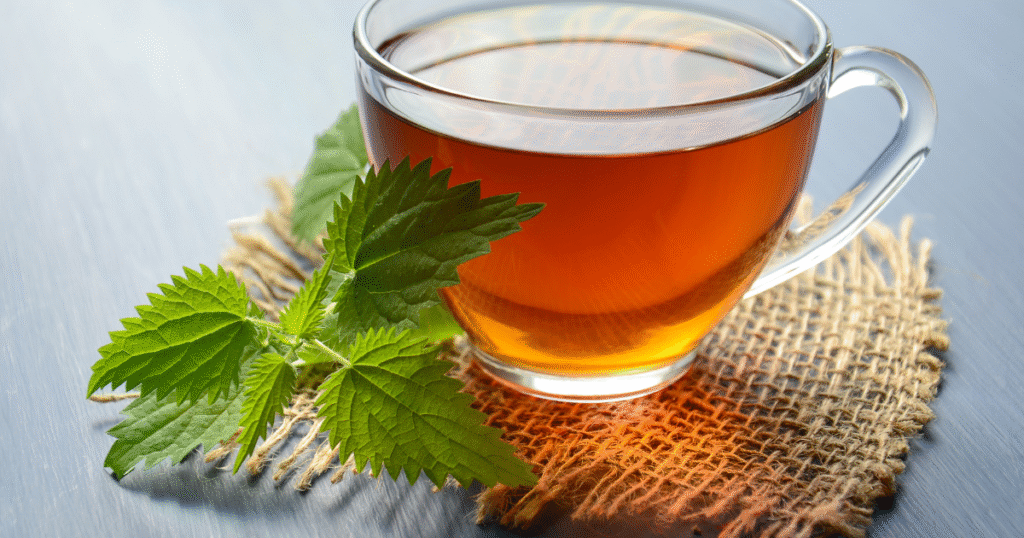Tea is one of the most consumed beverages in the world, second only to water. For centuries, it has been cherished for its soothing flavors, health benefits, and cultural significance. The answer depends on the type of tea, how it is prepared, and what is added to it. In this article, we will explore in depth the calorie content of green tea, black tea, and herbal teas, along with practical tips to enjoy tea without compromising your calorie goals.
Does Plain Tea Have Calories?
At its most natural state, plain tea is virtually calorie-free. Whether you choose green, black, white, or oolong, the infusion of tea leaves in water contributes negligible calories. A standard cup (8 oz / 240 ml) of brewed tea contains approximately 2–5 calories, which is so minimal that it is often considered calorie-free.
The calories come mainly from trace amounts of proteins, amino acids, and carbohydrates naturally present in the tea leaves. These are insignificant for weight gain or dietary concerns, making tea an ideal beverage for those monitoring calorie intake.
Green Tea and Calories
Green tea is among the most popular choices for health-conscious drinkers. A cup of unsweetened green tea typically contains only 2 calories. However, its value lies not in its calorie count, but in its high concentration of antioxidants, catechins, and metabolism-boosting compounds.
- Catechins in green tea are known to support fat oxidation.
- Caffeine, though lower than coffee, works synergistically with catechins to boost calorie burning.
- Drinking 3–5 cups daily can slightly increase energy expenditure, aiding weight management without adding extra calories.
When consumed plain, green tea is essentially calorie-free and highly beneficial for overall health. The key is avoiding added sugar or sweeteners that can quickly turn this low-calorie drink into a high-calorie one.
Black Tea and Calories

Black tea, known for its robust flavor and higher caffeine content, is also naturally low in calories. A plain cup of black tea has about 2–3 calories, making it as calorie-friendly as green tea.
The difference often lies in how it is prepared:
- Milk tea or chai: Adding milk, cream, or sugar significantly increases calories. A typical chai latte can reach 150–250 calories per cup.
- Sweetened iced black tea: Bottled iced teas sold in stores often contain 20–40 grams of sugar per serving, translating to over 100–160 calories per bottle.
Therefore, while black tea itself is nearly calorie-free, additions can quickly raise the calorie count. For those seeking weight control, sticking to unsweetened black tea or using low-calorie alternatives like stevia is best.
Herbal Teas and Calories
Unlike green and black teas, herbal teas are not derived from the Camellia sinensis plant. Instead, they are infusions of herbs, flowers, fruits, and spices. Popular varieties include chamomile, peppermint, hibiscus, and rooibos.
Most herbal teas are naturally calorie-free, unless dried fruits or flavorings are added. For example:
- Peppermint tea: 0 calories per cup.
- Chamomile tea: 2 calories per cup.
- Hibiscus tea: 2–5 calories per cup.
- Fruit-infused blends: May contain 10–20 calories per cup depending on natural sugars from dried fruit.
Overall, herbal teas are excellent low-calorie alternatives to sugary drinks, provided you choose unsweetened versions.
Factors That Increase Calories in Tea
Although tea itself is nearly calorie-free, preparation and additions make a big difference. Let’s break down the main culprits:
1. Sweeteners
- Sugar: Each teaspoon adds 16 calories. A sweetened iced tea with 3 teaspoons of sugar adds nearly 50 extra calories.
- Honey: Natural but calorie-dense at 21 calories per teaspoon.
- Artificial sweeteners: Zero-calorie options like stevia or monk fruit are better choices.
2. Milk and Cream
- Whole milk: 18 calories per tablespoon.
- Cream: Around 52 calories per tablespoon.
- Plant-based milk: Varies from 15–40 calories per tablespoon, depending on whether it is sweetened or unsweetened.
3. Flavored Syrups
Many coffee-shop teas use syrups like vanilla or caramel. A single pump can add 20–25 calories, quickly stacking up in drinks like chai lattes or milk teas.
Is Tea Good for Weight Loss?
Since tea is nearly calorie-free, it can be an excellent addition to a weight-loss diet. Its caffeine, antioxidants, and metabolism-boosting compounds may aid fat burning and appetite control.
- Green tea: Supports fat metabolism and boosts calorie expenditure.
- Black tea: Helps regulate gut bacteria linked to weight management.
- Oolong tea: Enhances fat oxidation more effectively than some other teas.
- Herbal teas like hibiscus: May reduce bloating and support hydration.
Replacing high-calorie beverages like soda, energy drinks, or sweetened lattes with plain tea can cut hundreds of calories per day, making it a smart strategy for weight control.
How to Keep Your Tea Calorie-Free
To enjoy tea while keeping it virtually calorie-free, follow these tips:
- Drink it plain: Skip sugar, honey, or syrups.
- Choose unsweetened varieties: Avoid bottled teas with added sugars.
- Use calorie-free sweeteners if you prefer a hint of sweetness.
- Opt for low-calorie milk alternatives like unsweetened almond or oat milk.
- Brew at home to control ingredients and avoid hidden calories from café versions.
Final Thoughts
So, is tea calorie-free? The answer is yes—when consumed plain, tea is virtually calorie-free and one of the healthiest beverages you can enjoy. Whether you prefer green tea for its antioxidants, black tea for its bold flavor, or herbal teas for their soothing properties, they all provide a refreshing, low-calorie option.
The key is mindfulness: avoid sugars, creamers, and syrups that turn your tea into a calorie-loaded drink. By enjoying tea in its natural form, you reap its health benefits without worrying about added calories.


